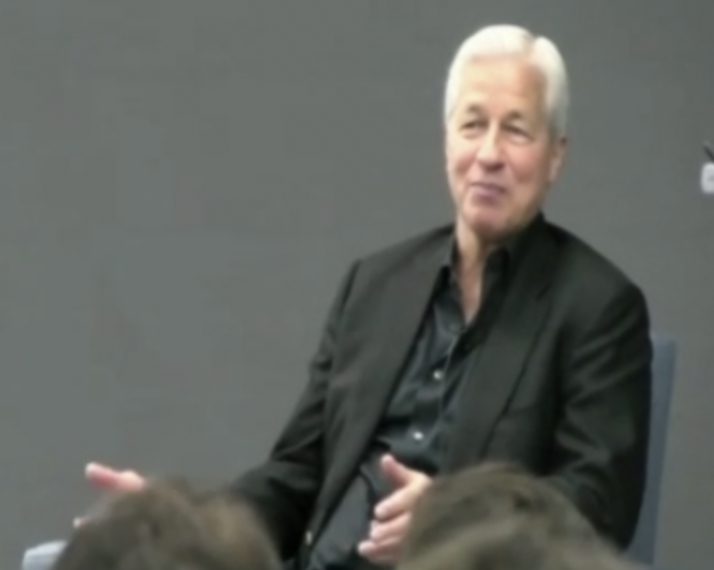‘This is the type of model that should be used in other parts of the country. Lift people up’ – JPMorgan Chase CEO Jamie Dimon
Bring Internet connectivity to all in Miami-Dade. Significantly increase tech exposure in grades K-12. Create pathways into high-paying tech careers for underrepresented communities. Help our small businesses, the backbone of our economy, make digital transformations to thrive. Beginning today, there is a new consortium focused on raising philanthropic funding and tracking progress with the goal of making all of this a reality in Miami-Dade County.
The organizations, including JPMorgan Chase, the John S. and James L. Knight Foundation, The Miami Foundation and aīre ventures, have announced Tech Equity Miami, which aims to deploy at least $100 million in funding over five years to expand internet connectivity, tech educational programming, resources for small businesses, and tech employment opportunities for Miami-Dade residents.
Today, JPMorgan Chase announced a $10 million contribution toward this initiative, part of the company’s $30 billion racial equity commitment. JPMorgan Chase Chairman and CEO Jamie Dimon discussed tech equity as well as his annual letter to shareholders released today at a Miami community event attended by Miami-Dade County’s and Miami’s mayors as well as a roomful of business and education leaders at Miami Dade College’s Eduardo Padron Campus.

“You have it exactly right. Working locally with businesses, jobs, certificates so that people get the job they want or a different education, that’s next level, that’s how it is going to get done. This is the type of model that should be used in other parts of the country,” said Dimon at the community event. “Lift people up.”
Of course, we’re not starting from zero, as a number of organizations are already working on these issues. Indeed, in 2021 through today, more than $55 million in philanthropic dollars have already been committed to these goals, including support from Miami-Dade County, and today marks a call to action to add more projects to the consortium to get to that $100 million – and beyond. “We’re very much hoping this is seen as a down payment on what is a huge opportunity for the county,” said Raul Moas, Senior Miami Program Director for the Knight Foundation.
Importantly, to measure community impact, all projects that receive a “Tech Equity Miami” designation will contribute information and statistics to a public database that tracks progress toward the initiative’s outcomes and impact goals.
“Our vision for Tech Equity Miami is to effectively direct resources to projects and initiatives that use tech to improve quality of life for individuals, families, and business owners across the economic spectrum,” said Leigh-Ann Buchanan, president of aīre ventures, the social impact venture studio responsible for incubating Tech Equity Miami through operational funding support from Citi Foundation. “Widening disparity, coupled with the national spotlight on Miami as a tech hub of the future, makes this a pivotal moment to drive outcomes-driven systemic change. We believe a model of collective investment and impact reporting can achieve just that.”
Buchanan, Moas and other community leaders have been quietly working on this consortium for about a year now. Buchanan’s organization produced a REDI (racial equity, diversity, and inclusion) Scorecard last year which documented that women and Black leaders lack support to thrive in the ecosystem, among other findings. It also found that the community wants to see more publicly accessible data on efforts to move the needle on equity and inclusion. The community leaders didn’t see a model out there that would achieve what they wanted to do so aire ventures built it, Buchanan said.
“We’re thrilled to be creating this opportunity to bring funders together with the intention to concentrate resources in evidence-based, outcomes-based interventions that build a better, more prosperous, more equitable Miami,” said Moas, in an interview with Refresh Miami. That could be connecting homes to broadband, as MiamiConnected is doing led by the Miami Foundation. That could be to more exposure to STEM curriculum in K-12 and post-secondary education for careers in tech, he explained.
“As a community, we’re lifting up the initiatives, the projects, the programs that are having a greatest impact so that they’re more easily discoverable by those who want to support this social change, including national funders and stakeholders like JPMorgan Chase,” Moas said.
The need is real. Consider these data points amid the pivotal tech boom our community is experiencing:
- While enrollment in tech-related programs at Florida International University and Miami Dade College are experiencing double-digit year-over-year growth, many families do not have the same opportunities to access them. Census data reporting showed as many as 100,000 households in Miami have no internet access at home. That’s 77% – nearly one in five homes.
- Tech employment is growing – and the area experienced an 30% increase in workers in the IT and software professionals moving to the area last year. In terms of tech employment, more than 65% of Greater Miami residents identify as Black, Hispanic or Latino, yet of all South Florida tech employees, these groups make up only 12% and 27% respectively. What’s more, only 26 % identify as female.
- Miami’s tech momentum has been amazing – by one metric, it’s soaring. Venture capital across the Miami-Fort Lauderdale metro region was up 135% in 2021 over 2020, and nearly two-thirds of the deals were for Miami-Dade companies. Still, for ventures led by women and Black founders, the percentage of deals for them is in the low single digits in our community.
To that end, the goals for the for the five-year initiative are these:
- Bring internet access and digital literacy to 100,000 Miami-Dade County students currently lacking at-home broadband;
- Support on-ramps that bring 25,000 underrepresented students and workers into tech opportunities and experiences;
- Provide at least 1,000 micro-businesses with digital transformation training and technology solutions;
- Provide digital exposure and literacy for 50,000 families from underserved communities.
To deliver on these goals, JPMorgan Chase, Knight Foundation, the Miami Foundation and Miami-Dade County have committed anchor funding to Tech Equity Miami designated projects. The consortium will work in conjunction with other community partners and individuals to procure additional funding to meet its initial $100 million goal.
“The beauty of this model is it gives us many different ways to make investments in community. What we share is a commitment to a city that is more prosperous and more equitable because tech in all its many forms is more accessible to residents,” said Moas. “As far as we know it is a first of its kind model in the nation.”
Adds Buchanan: “When you have an emerging tech ecosystem where there’s a lot of energy, a lot of movement, and a lot of opportunity, we can have an infrastructure to ensure all of the community can benefit from a tech boom. We can build a more sustainable pipeline of talent and opportunity for people in tech If we’re intentional about how we direct our philanthropic resources. This is just the beginning.”
Tech Equity Miami is actively recruiting additional funding partners and projects. To learn more: www.techequitymiami.org

Follow Nancy Dahlberg on Twitter @ndahlberg and email her at [email protected]
READ MORE ON REFRESH MIAMI:
- Miami Dade College to expand emerging tech programs, open a Center for AI and more with new $15M investment
- BOOM! #MiamiTech 2021 (the recap)
- South Florida’s tech ecosystem lacks support for women and racial minorities, REDI Scorecard shows
- CodePath is expanding in Miami-Dade, thanks to $2.2M grant from Knight. Here’s its plan for increasing diversity in tech
- 100,000 students will get free Internet and training, thanks for MiamiConnected partnership
- To grow Miami’s tech talent, Knight to invest $15.3M in FIU, UM, Baptist
- Tech and politics do mix at 2024 Miami Tech Summit, with eye on the future - April 18, 2024
- #MiamiTech Everything: Seen and heard in April - April 17, 2024
- 8+ things to know in #MiamiTech: Dapta and Siprocal raise funding, plus news from Jeff Bezos, MoonPay, Sustainable Skylines, Freebee & more - April 11, 2024





